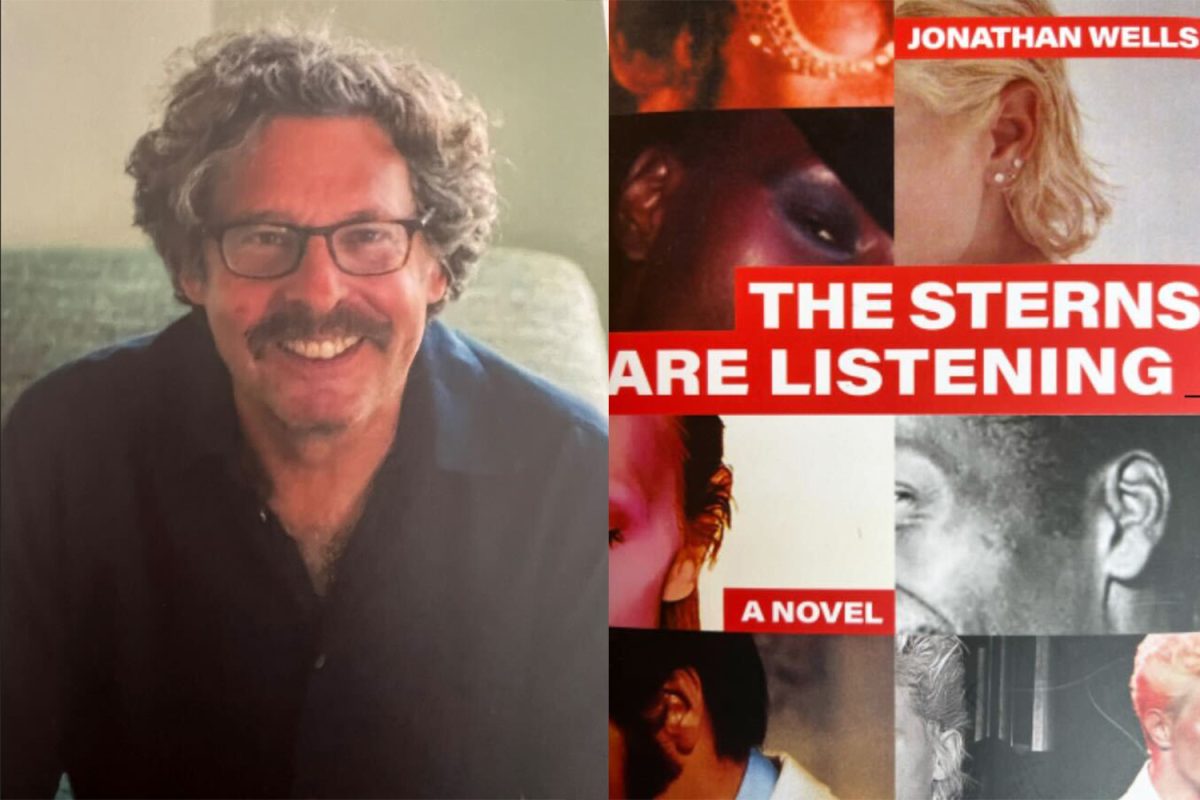Jonathan Wells is the author of three poetry collections, “Train Dance” (2011), “Debris” (2021), and “The Man with Many Pens” (2015). His poetry can be seen in The New Yorker, AGNI, Ploughshares, The Bennington Review, and more.
Wells will hold a reading for his new novel, “The Sterns Are Listening,” an all-too-familiar story about a family’s mismatched communication style and their subsequent ups and downs, at Prairie Lights Bookstore in Iowa City on Monday from 7-8 p.m.
The Daily Iowan: What were the core ideas behind “The Sterns Are Listening”?
Jonathan Wells: The book came about because of two thoughts — one was a whim. There was a famous punk club called CBGB in the ‘70s that I went to. Many people went there and later became famous. I thought, as their fans became older and older, wouldn’t it be a good idea if they created a line of hearing aids for people who lost their hearing at the club? It would be a big hearing aid, a big chunky one. Not something you’d be ashamed of, but one that you’d wear and you could see other people and identify others like you who lost part of their hearing to rock and roll.
The other thought was that my kids had friends growing up who, one day, we just stopped hearing from. We found out later that they’d been sent to wilderness programs in Utah, but before we knew that I would try to make up scenarios of what happened. My story blends the farce of creating a hearing aid for people who lost their hearing to rock and roll, and the more serious question, what did these kids do? Why did their parents send them away?
How do you think family dynamics shaped this novel?
The two parts are inseparable. The core family story and the larger family story are the focus of the novel. What did the parents hear or not hear about their son as he was growing up? What caused the behavior that made them send him away to a wilderness program? How is that related to rock and roll in some way?
How do you want people to interpret the title?
It means that everyone is listening, not listening, or refusing to listen to something. How does listening or not listening inform the story? [How does] what you hear or don’t want to hear work together? I think that’s the critical part of the story [title], “The Sterns Are Listening”. Are they? What do they hear? Are they paying attention to what they hear? What are they ignoring? Those are the motivating questions for me.
Forbes reviewed your novel in November. Do you agree with this review?
I think there were several points [Tom Teicholz] made in the review that were interesting to me, how he linked the novel to my memoir, which was particularly about how rough I was at that age and things that were related to my family. I hadn’t made the association that he did. I thought that was interesting and I thought he understood the book pretty well.



